The answer to the question, when do chickens start laying eggs, varies with the breed of chicken, and several other conditions. These conditions include illness, access to nesting boxes, stress, nutrition, fresh water, and molting.
Different Breeds Start Laying at Different Ages
Some chicken breeds are genetically able to lay eggs sooner than others. The Golden Comets is bred to lay a large number of eggs and may start as early as 16 weeks. However, this breed’s production is reduced significantly in its second year and they do not live longer than 3 years.
Breeds such as Barred, Delawares, and Rhode Island Reds usually lay eggs around 18 to 20 weeks of age. They also lay eggs until their fourth or fifth year. Some breeds that are heavier and larger do not lay eggs until the 28th week.
If your hens do not start laying eggs within these periods, there may not necessarily be a problem. Hens starting late with their production of eggs are often the ones who produce more eggs and live longer lives.
Hens should never be forced to begin laying eggs sooner as this may create reproductive problems. An example of such a problem is vent prolapse which makes the hens susceptible to illness.
Common Chicken Breeds Laying Ages
| Chicken Breed | Age of First Egg |
|---|---|
| Golden Comet | 16-18 weeks |
| Barred Rock | 18-20 weeks |
| Delaware | 18-20 weeks |
| Rhode Island Red | 18-20 weeks |
| Plymouth Rock | 21-22 weeks |
| Sussex | 22-24 weeks |
| Leghorn | 24-26 weeks |
| Wyandotte | 24-26 weeks |
| Australorp | 26-28 weeks |
| Orpington | 28-32 weeks |
| Brahma | 28-32 weeks |
| Cochin | 28-32 weeks |
| Cornish Cross | 8-12 weeks |
Illnesses Delay Egg Laying
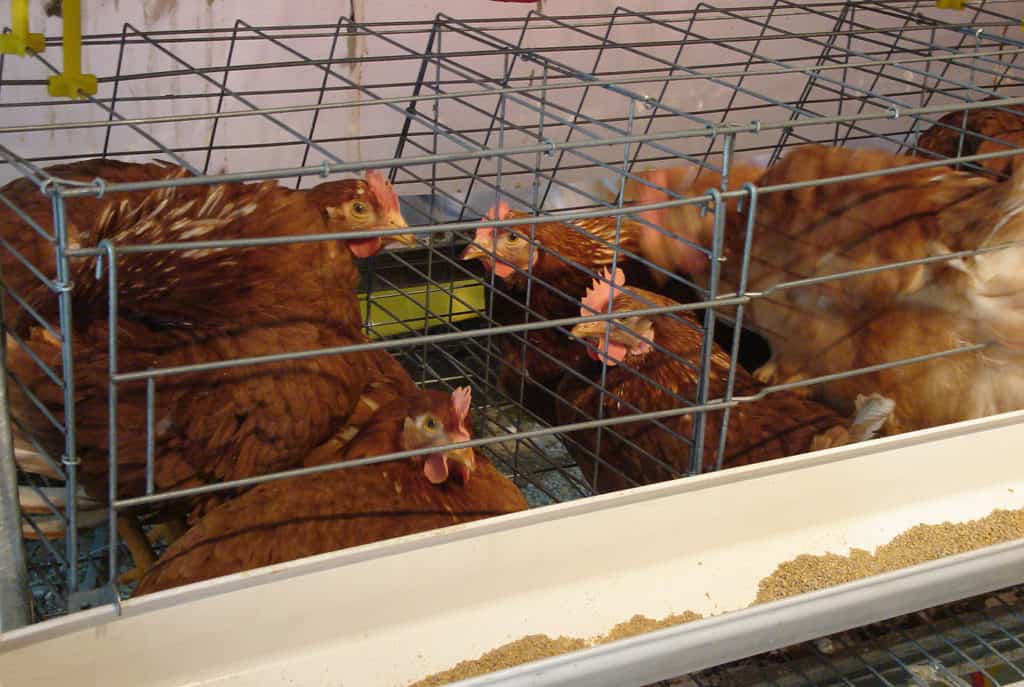
Parasite infestation by worms, mites, and lice often result in a delay of egg production. Common external parasites that infest chicken include:
- Flies and mosquitoes – Biting gnats, mosquitoes, and black flies irritate chickens and are found in wetlands and stagnant water. Removing nearby stagnant water sources helps treat this issue and approved pesticides can be used to get rid of them. Also, natural methods include the use of garlic cloves and apple cider vinegar. These can even be placed in the hens’ water and will prevent the parasites from accumulating.
- Ticks – These are common parasites that affect chickens. Most commonly seen in the US are shaft louse, body louse, wing louse, and head louse.
- Bed bugs – These parasites lay about 5 eggs daily during their life and they live up to 12 months. Their infestation can be prevented by keeping the hen house clean and dusting with approved poultry dust.
- Lice – Many different kinds of lice infect chicken. A common way chickens catch lice is from wild birds that have been added to an existing flock without quarantine. Infection also comes from contaminated equipment, or from clothing. During her 3 week lifespan, a female louse can lay between 50 and 300 eggs. An effective treatment is poultry dust and focuses on the main tail area, the saddle feathers and the wings. This treatment should be repeated 14 days later until the infestation clears.
- Fleas – Chicken fleas are small and brown and can be seen in the birds’ feathers. Flea infestation is worst in the hotter months so special attention should be paid to hens during the summer months.
These parasites cause problems that vary from mild irritation and decreased egg production to, in severe cases, death. It is important to check your chickens regularly for infestations that may become a problem later on. Simple checks that can be done include inspecting their legs and looking at their vent area every week.
Access to Nesting Boxes
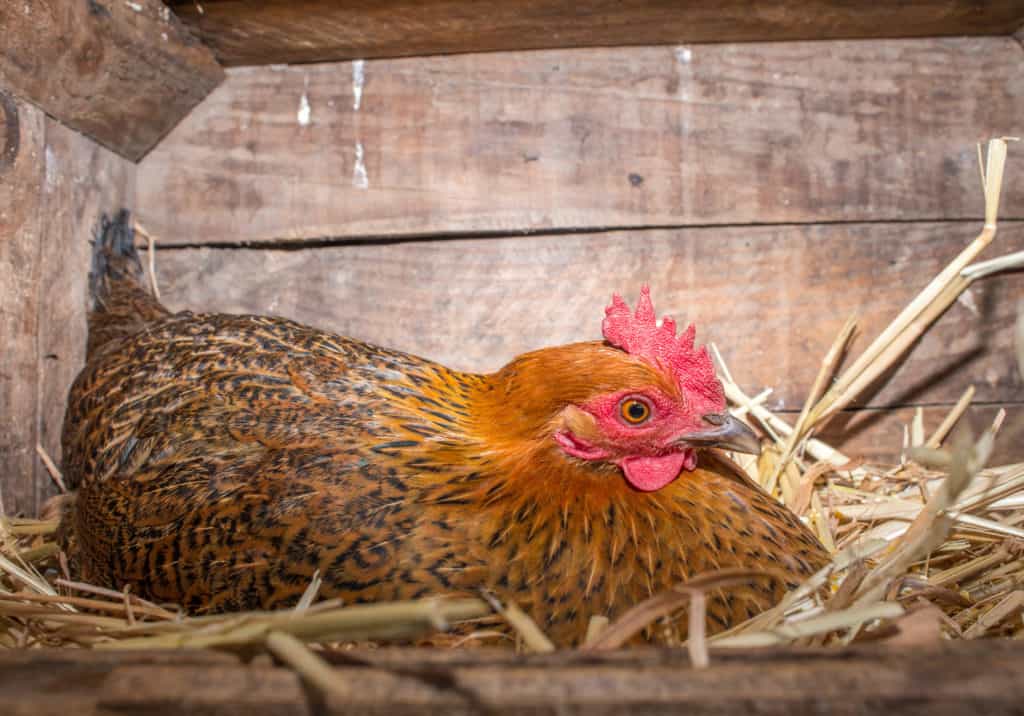
It is important to ensure that you provide your hens with a ready to lay environment. A safe, cozy nesting box with fake or some wooden eggs will encourage laying. It will show the hen where she should go when she is ready to lay her eggs.
Older hens may prevent young pullets (young hens) from accessing nesting boxes to lay their eggs. To address this issue, temporary nesting boxes can be built for the young pullets using cardboard boxes, cat carriers, or wooden boxes.
Nesting or straw material can be added to make the boxes comfortable for the young pullets. It may take a short while for the young chickens to get comfortable with the impromptu nesting boxes. Once they start laying regularly, the flock dynamics will change, and older hens will become more accepting of the laying pullets.
Sometimes hens may lay their eggs in unexpected places such as compost bins, unused shelves, or under bushes. Checking these areas may help if your pullets are not laying as much as they should.
Stress
Stress can cause chickens to stop or not start laying eggs. Physical hardships can create stress in chickens, and some common stressors include:
- Too much handling – Some breeds tolerate handling very well, while others become stressed by it. Being chased by dogs seeking to catch them can also create stress in some chickens.
- Disruption to the normal environment – Moving chickens to a new coop and inadequate roost space can create stress for chickens.
- Sudden change in feeds – An unfamiliar feed may cause digestive problems and unnecessary stress. To avoid this, new feed should be introduced gradually by mixing a small amount with the existing feed and gradually increasing the amount over a few days or a week.
- Disrupting the pecking order – Introducing new chickens to the flock could create aggression by disrupting the pecking order and creating stress. Techniques that can help with integration include adding newcomers at night, adding new feeders and waterers, and using temporary partitions.
Nutrition Affects Hens Laying
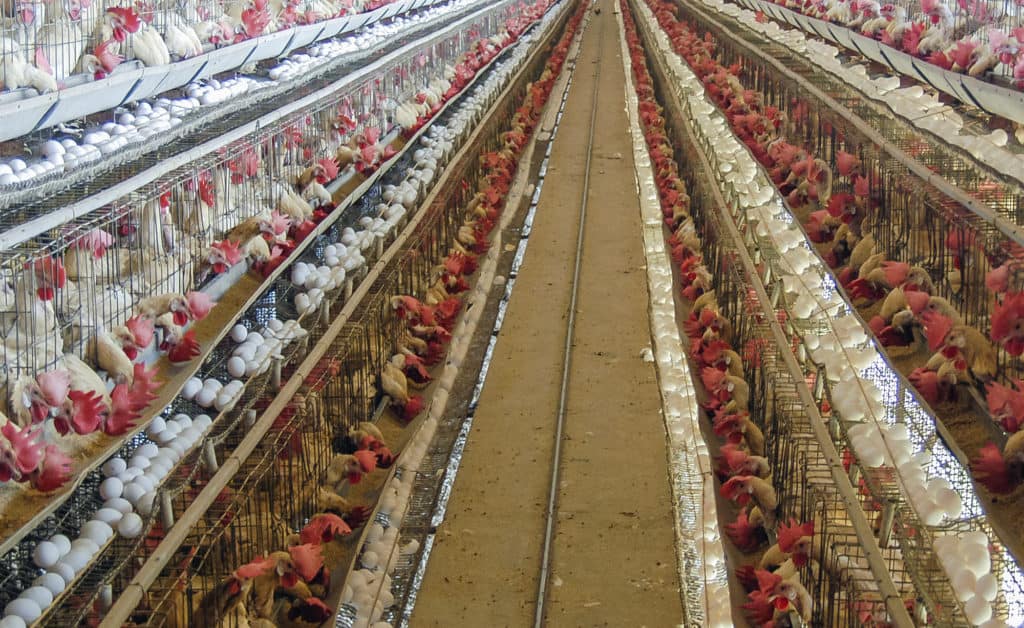
Proper nutrition greatly affects the egg-laying of hens. Providing proper nutrition for your layers will ensure the eggs will not have soft shells that break easily. It also ensures that the eggs will have shells at all.
Good nutrition should be established during the formative weeks of the bird’s life. Cutting corners by using supplementation often results in delay in the production of eggs and problems with the eggs produced.
Treats given to hens are often unhealthy. When the excess is given fat hens develop that will not be productive egg layers.
For the first 6 weeks of life, chick starter feed should be given. This formula has 20 to 22% protein to encourage the rapid development of bones and feathers. Young pullets will need just 14 to 16% from week 6 to 20 or until the birds start laying. Hens that are 20 weeks and older require 15 to 18% of the protein in their feed.
Even small variations in the protein percentage of the feed can seriously set back egg production. Feeding hens maize instead of layers pallets will not provide the quantity of protein the hens require. Hens will not continue laying a good quantity of eggs. You may give your hens high protein snacks like oats, mealworms, and pumpkin seeds if they struggle to lay eggs.
Another factor to pay attention to is the freshness of the feed. This is because the effectiveness of the vitamins in the feed is reduced over time. So a bargain price on feed may not be good for your hens if the feed is not fresh.
The Importance of Water
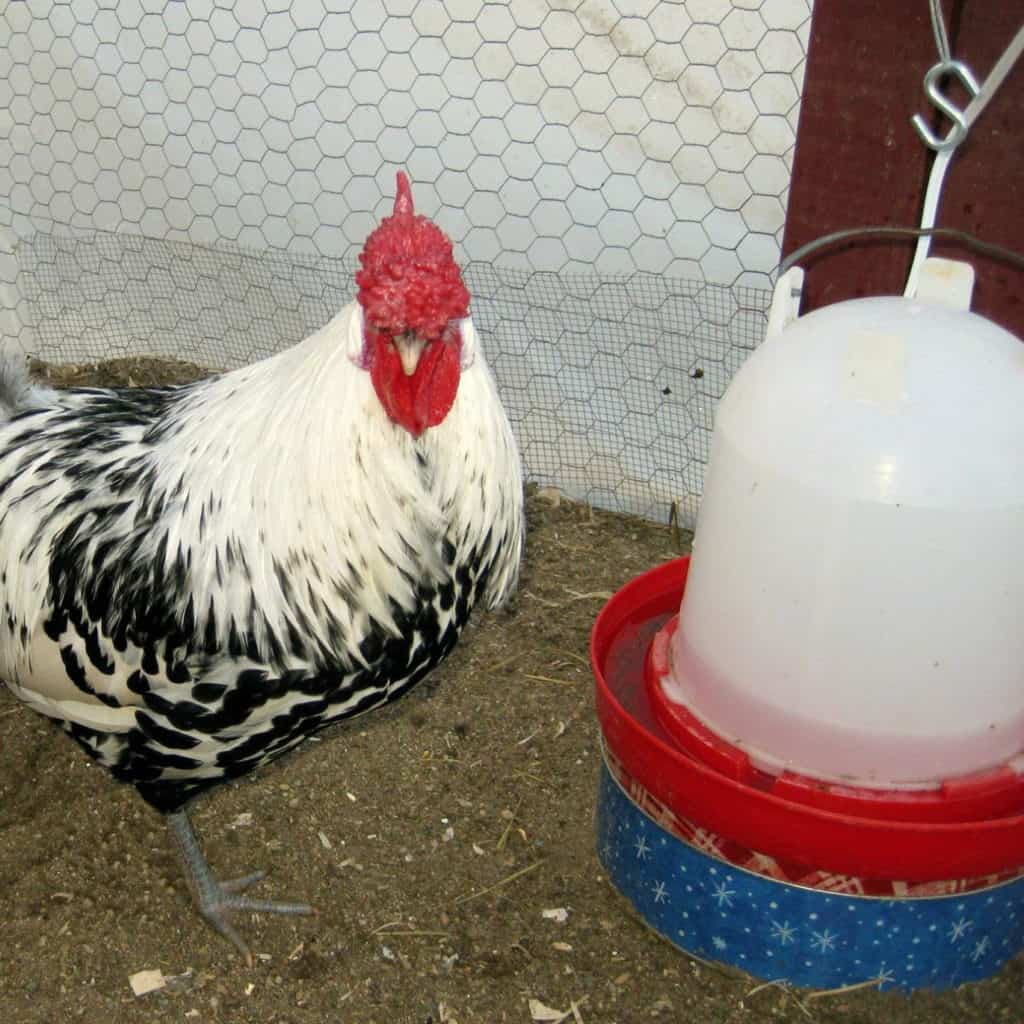
Clean water is vitally important to the health and egg production of hens. Hens drink a large quantity of water so keeping the water clean is of utmost importance. This is challenging since the hens themselves dirty the water constantly.
They poop and scratch litter into the water so its quality should be regularly checked. Plastic and elevation stands are options to help keep both the water and feed fresh. You may also make a wire stand yourself.
Using an elevated drinker is another solution but you will need to change the water often. For bigger hens, feeders and drinkers can be suspended at a higher level to prevent them from being contaminated.
Another option is nipple drinkers which can be used for even one-day-old chicks. With a little coaching, they will quickly understand how to use them. You may use a small regular drinker to allow the hens to drink for a few days to stay hydrated.
Molting
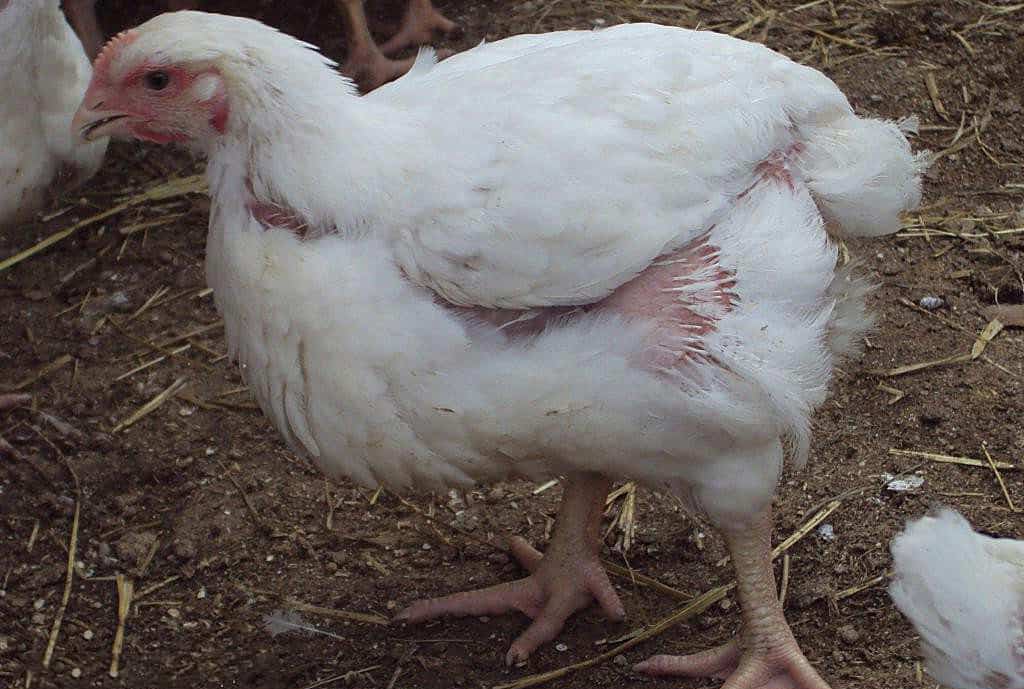
Hens that have matured late in the season, when daylight hours are shorter, may go through a molting process. When molting, the hens show missing patches of feathers over their body and may display changes in appetite and behavior.
During molting, energy is directed towards growing feathers and away from the egg-laying process so it will prevent egg production. Molting periods last from 8 to 16 weeks. This process typically happens to older hens and there is nothing that can be done to prevent it.
The first eggs produced after the molt may be small or odd. In the second year, the eggs produced will be bigger than the prior year. As the layer ages, this pattern will continue with the hens producing misshapen or tiny eggs. In the new year, the eggs will again be larger but fewer in quantities. Because of this, many people opt to receive their chicks earlier in the year.
Summary
To the question, when do chickens start laying eggs, the answer is around 16 to 20 weeks. However, certain factors such as chicken breed, freshwater, parasite infestation, stress, proper nutrition, access to nesting boxes and molting can impact the start of egg-laying.

Joseph Hudson has been raising chickens for over 15 years. In 2018, he completed the Agriculture & Natural Resources program at Mt. San Antonio College. He currently raises over 1400 chickens on his 7.5-hectare farm. He keeps sharing his experience on raising healthy and happy chickens on Chicken Scratch The Foundry.
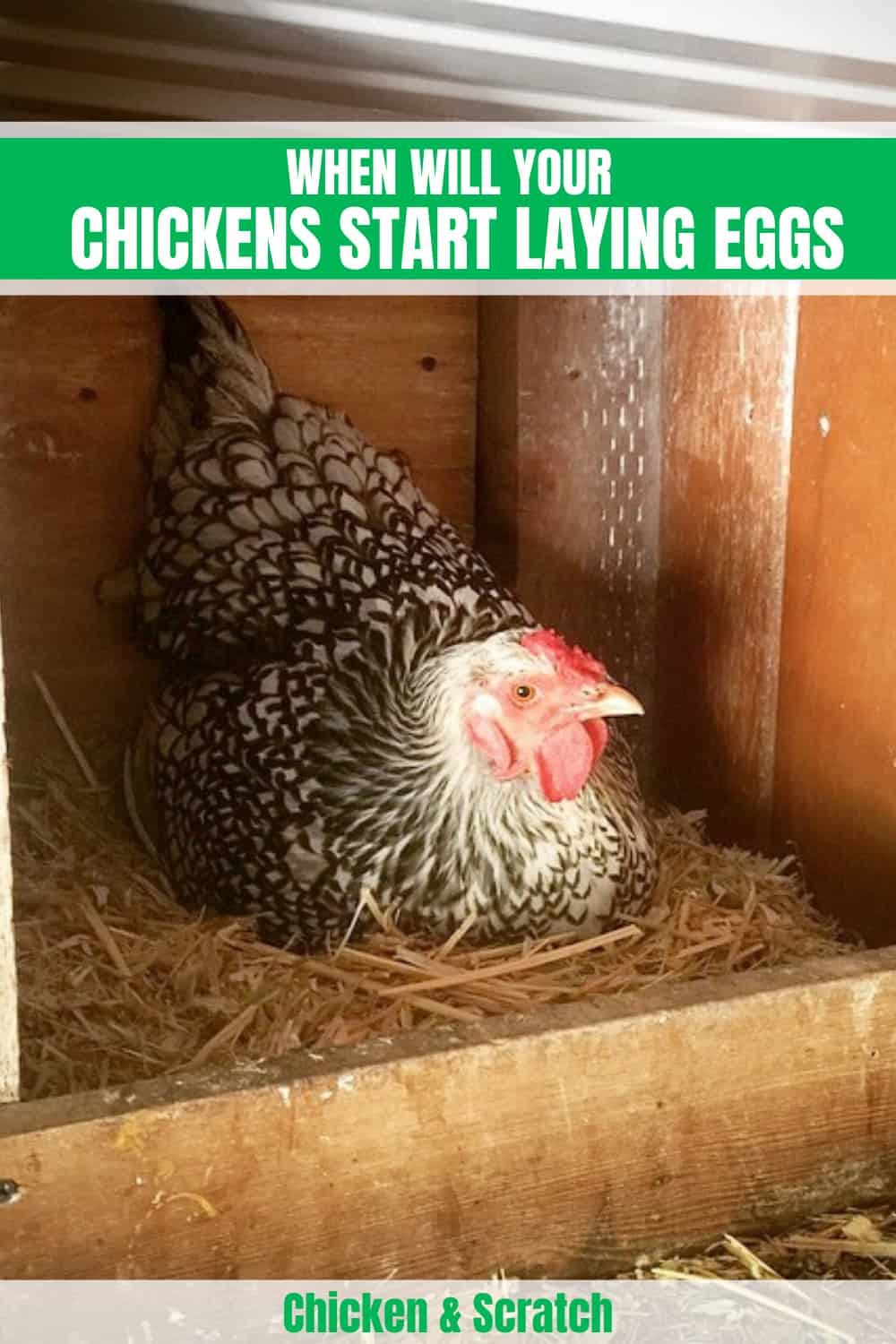
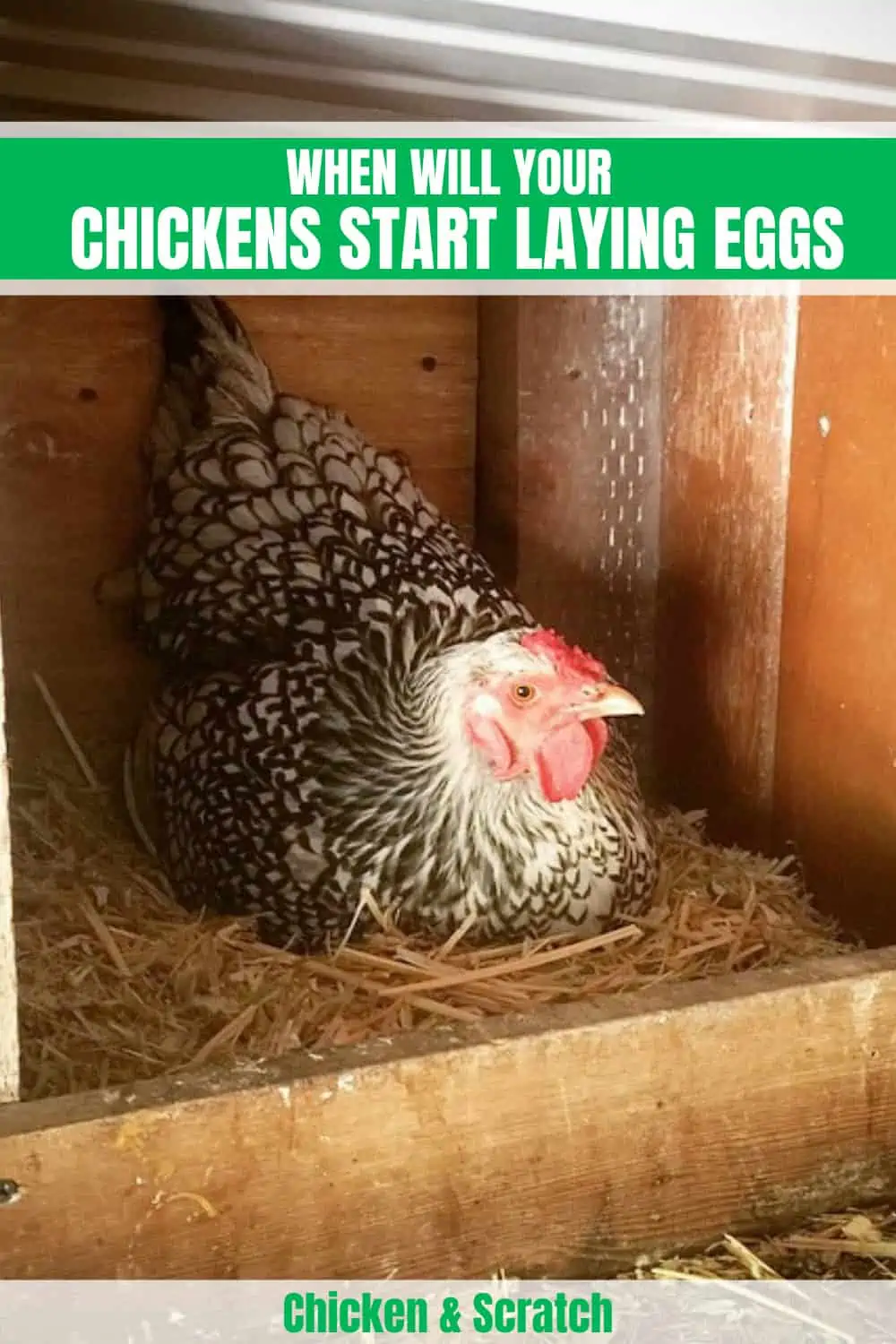







Our chickens are 24 weeks old and haven’t started laying. They are a Road Island Red cross. Not sure what they are crossed with, the seller didn’t say. We feed them laying mesh and we have a rooster with them. Added extra light for them and their run is sufficient. Clean water and feed taken care of. What are we doing wrong? Seems they should gave started laying by now. Any suggestions?